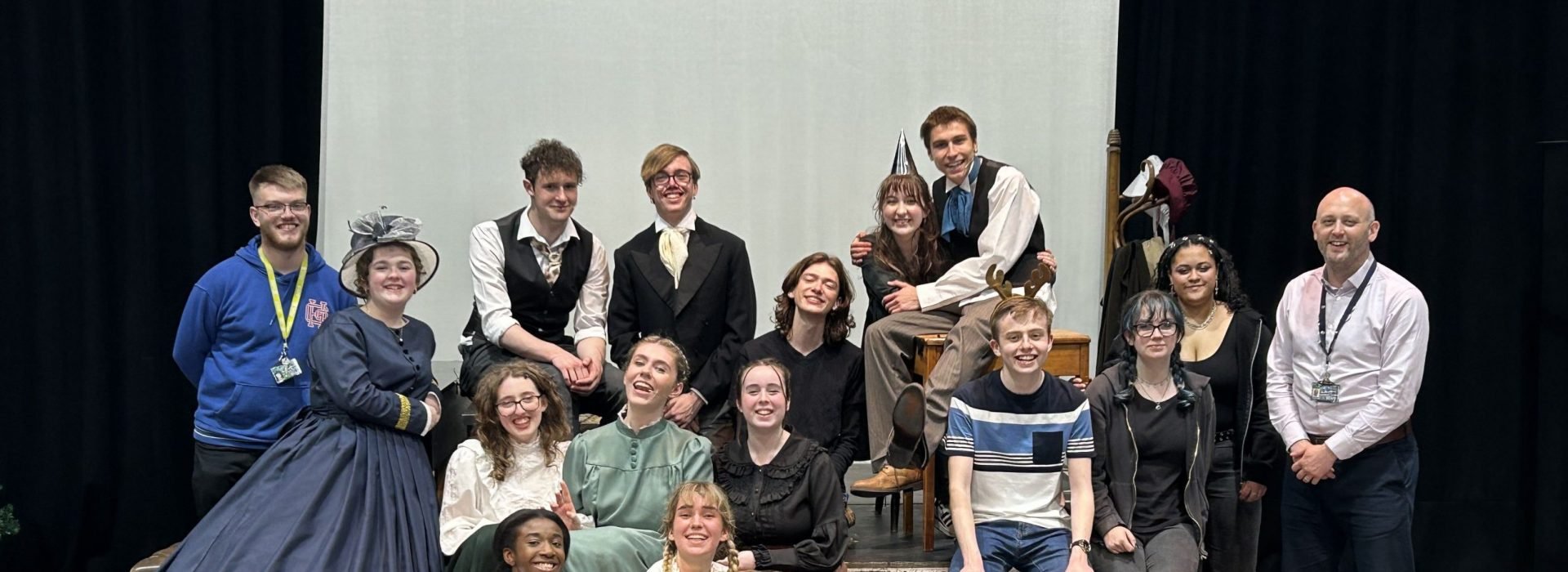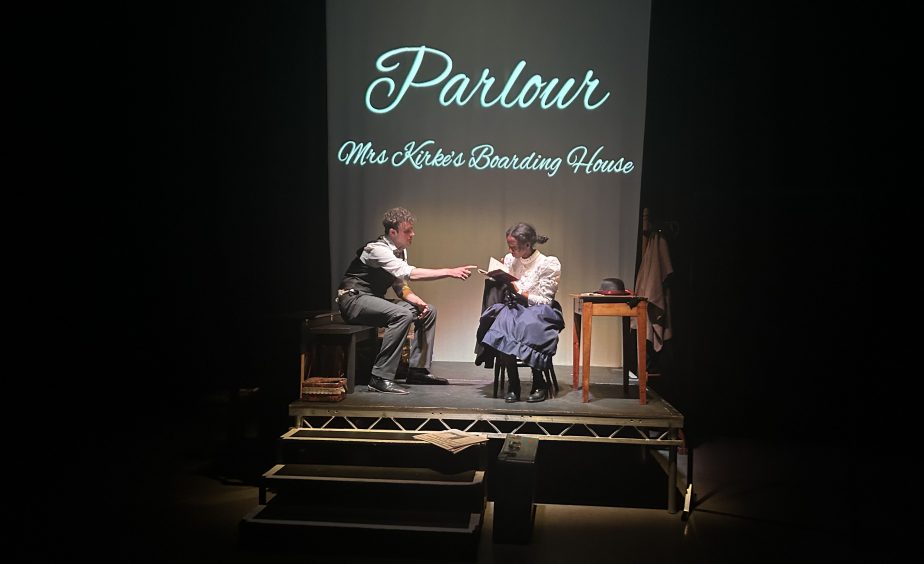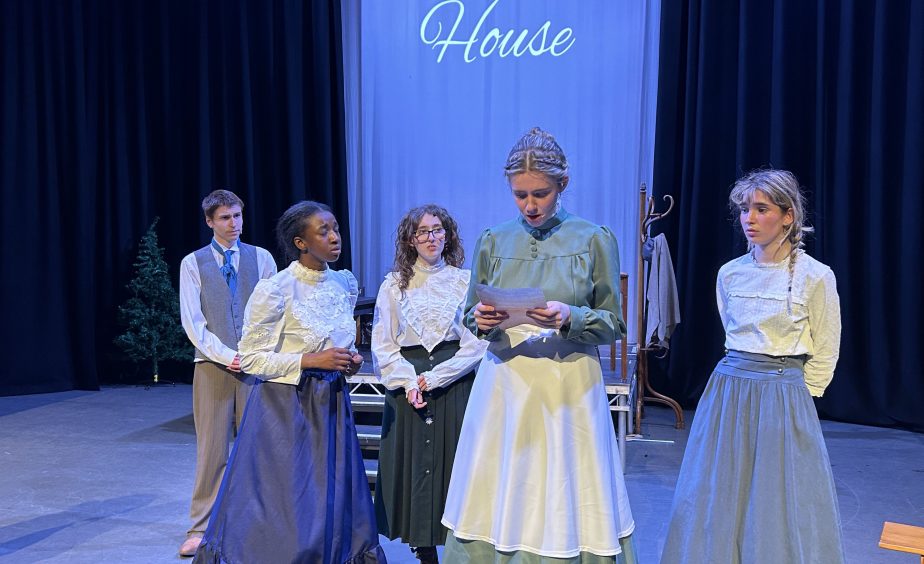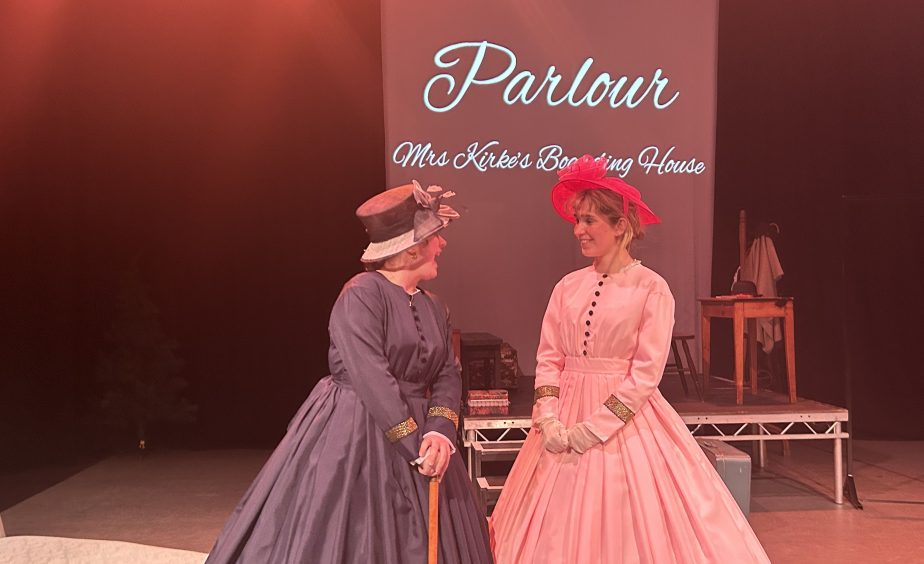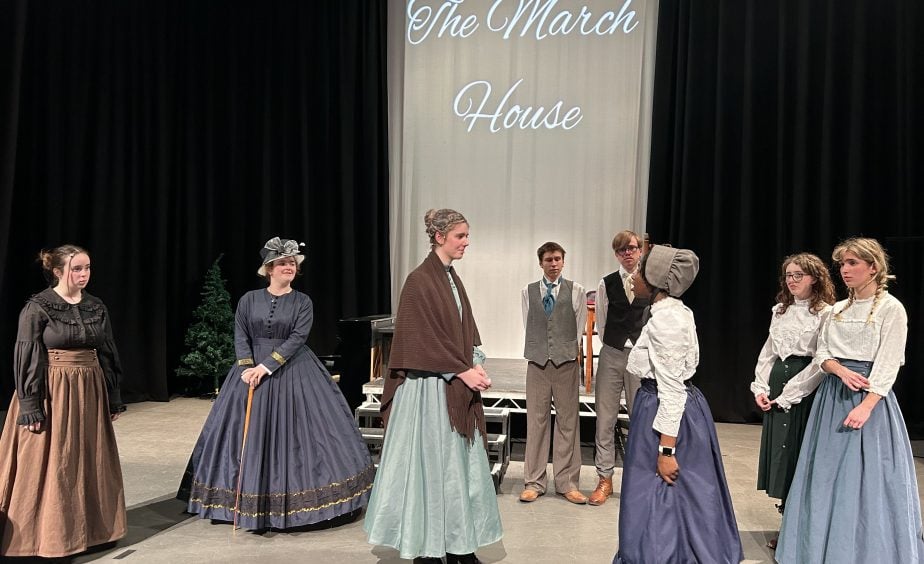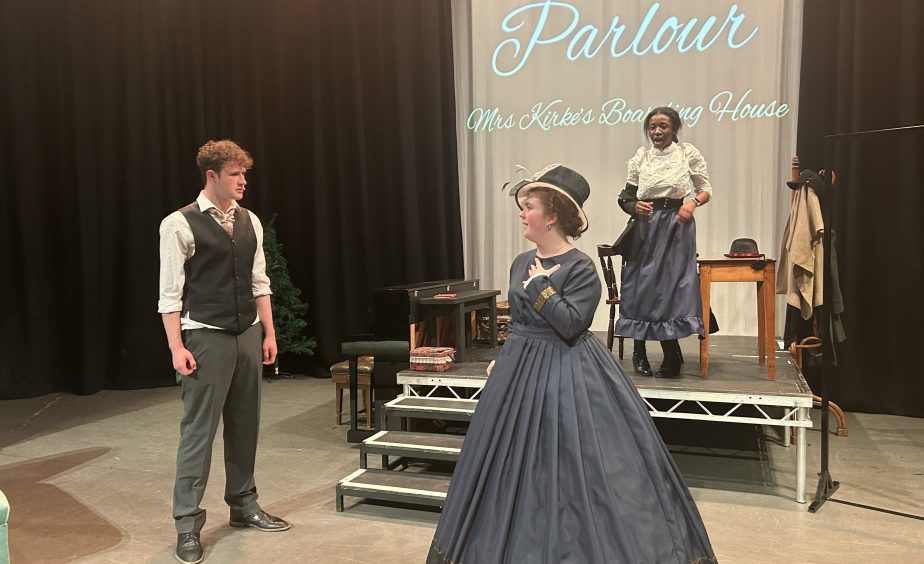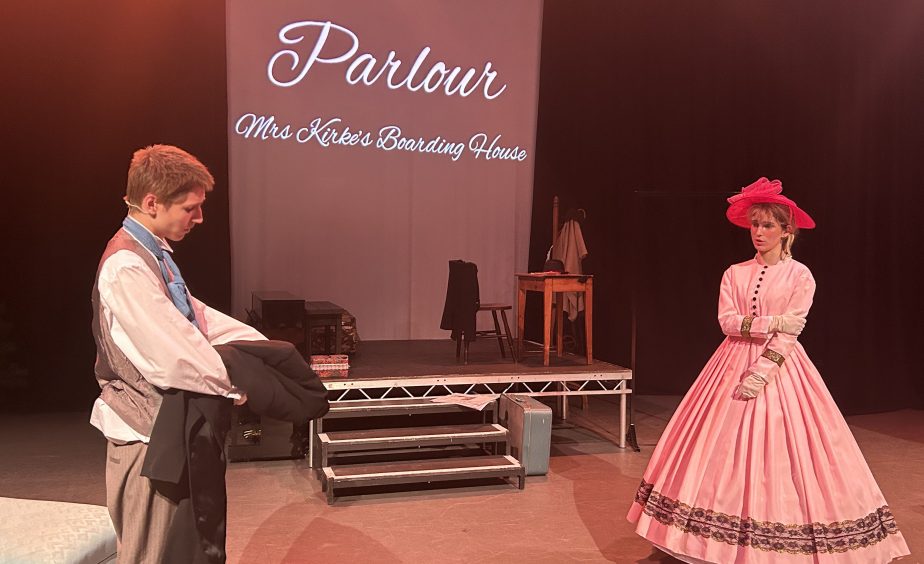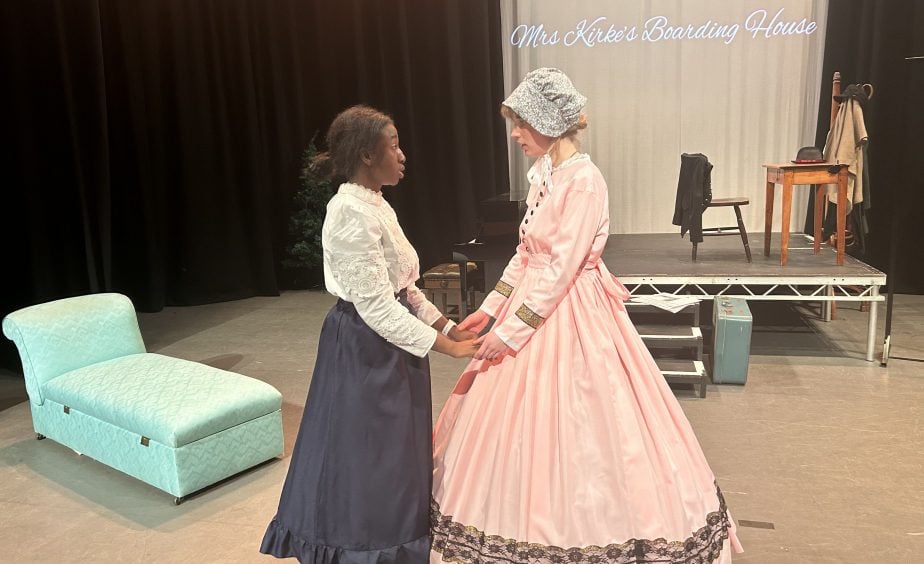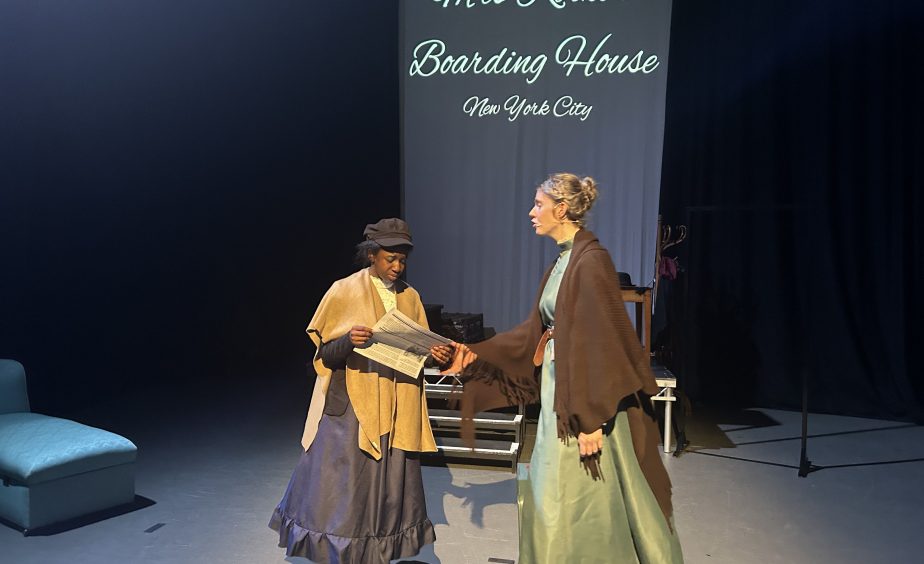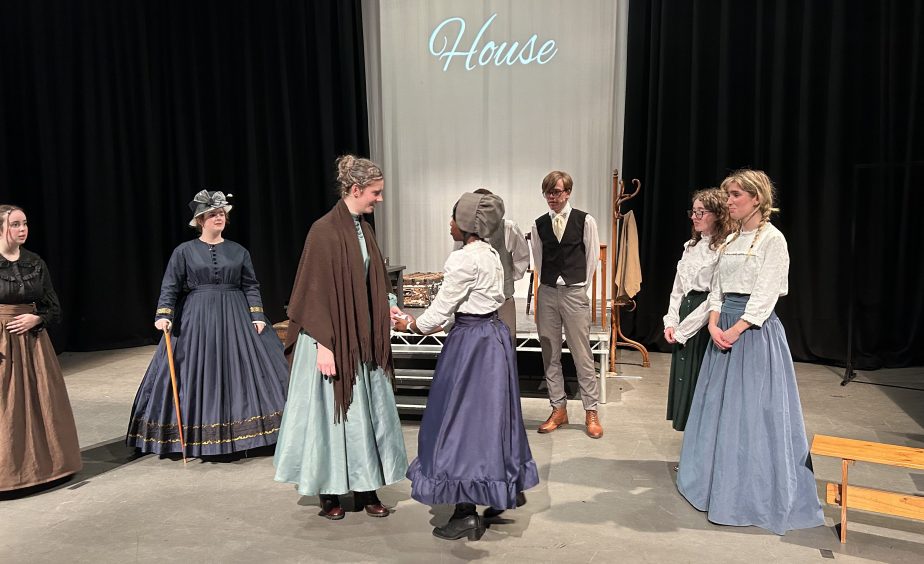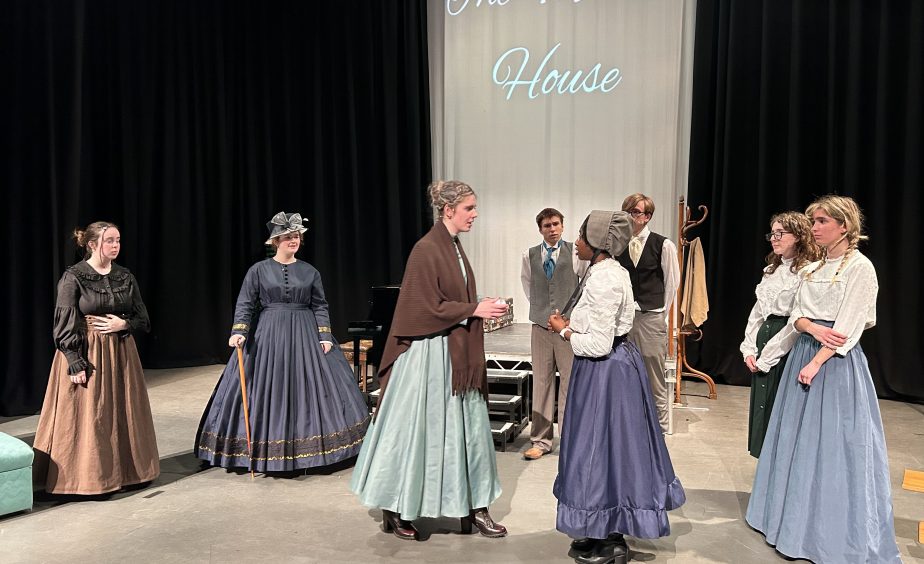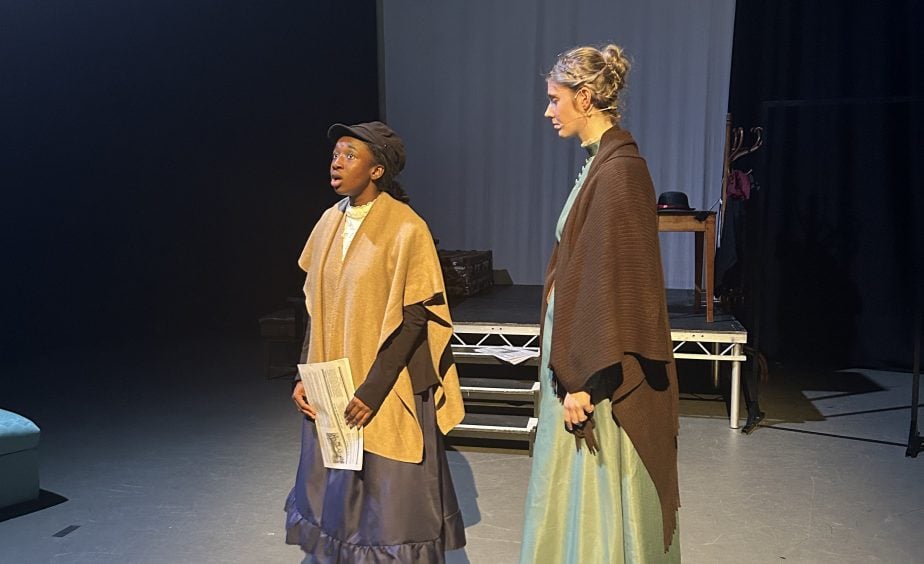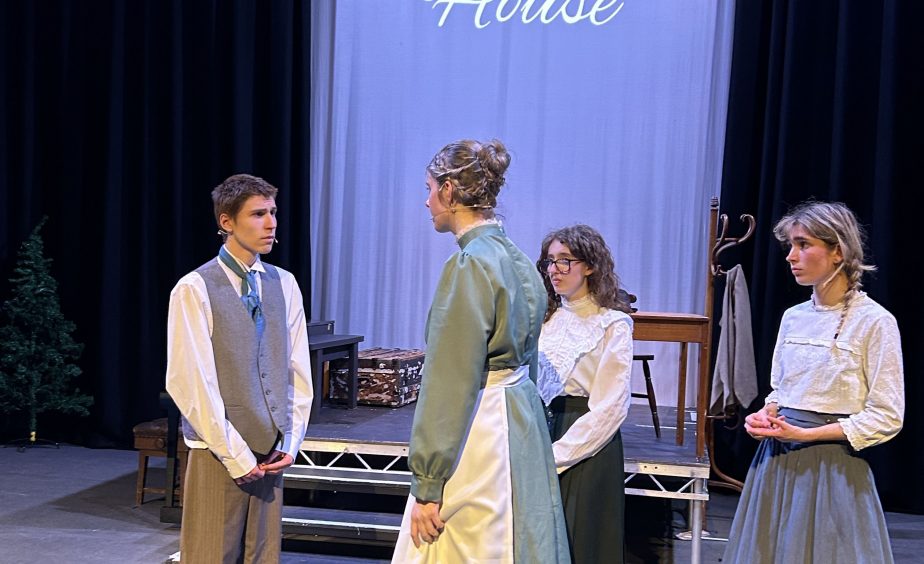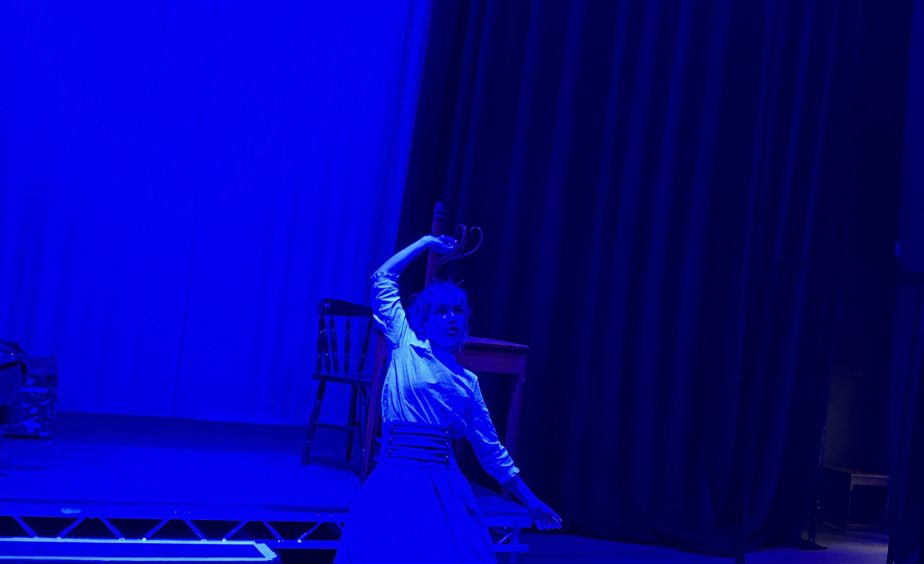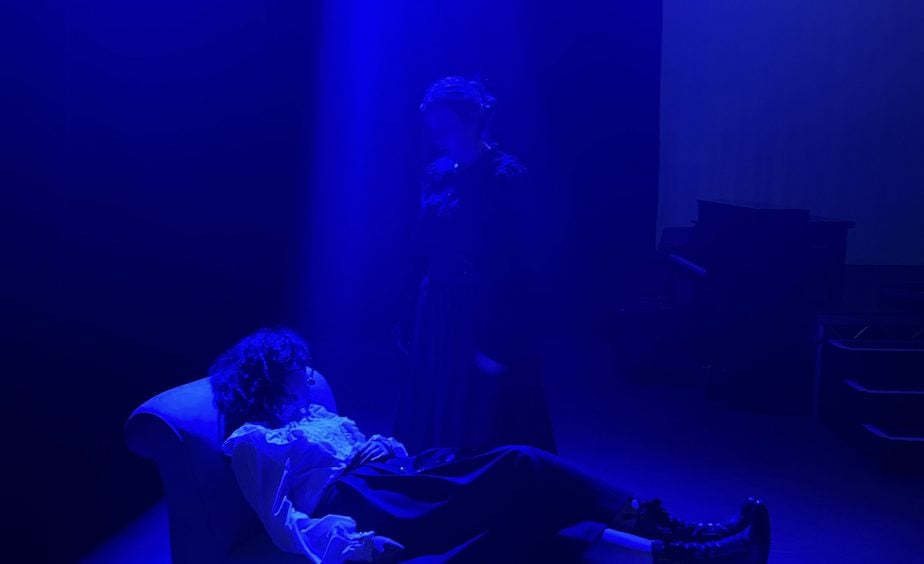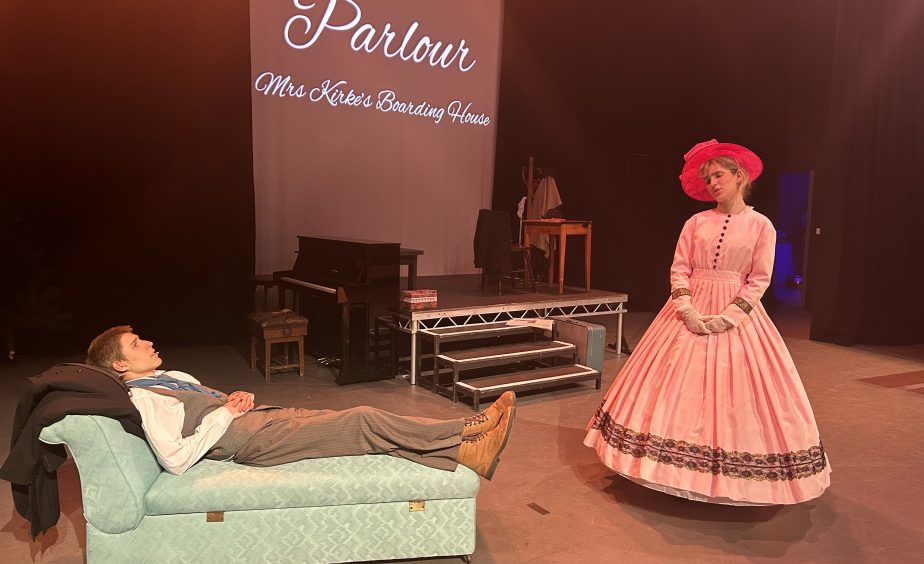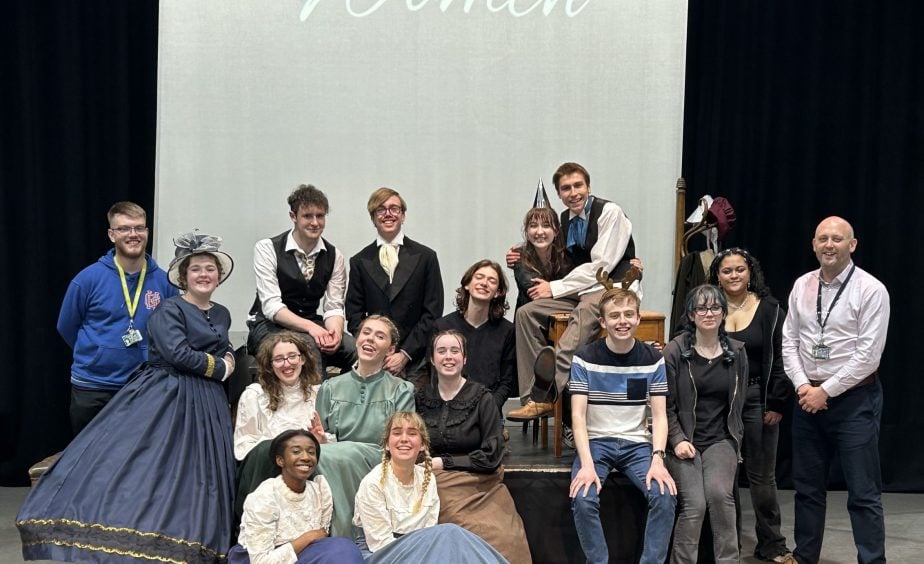The last performance of Loreto’s jam packed season of Performance was a production of Louisa May Alcott’s Little Women.
For those unfamiliar with Alcott’s novel, Little Women is a coming-of-age story that centres around the March sisters, who find themselves newly poor in the midst of the American Civil War as their father is away serving on the frontline
Loreto student reporters Daisy and Aimee, came to see the show. Here’s what they thought of it:
A sincere and touching performance of the beloved classic (Daisy's review)
This book adaptation is given justice with Loreto College’s production of the play. This adaptation successfully depicts the March sisters as they transform from girls to women over the years and overcome tragedies, heartbreaks, and disappointment in their bids for independence and achieving their dreams.
The lighting design and projections that cascade onto the stage are nothing short of alluring. The play opens with dramatic visual effects that set the scene and provides historical context to the setting of New England during the American Civil War. Such lighting and projections allow the audience to gain, if they weren’t already aware, historical motive for the independent spirit that the Marsh sisters possess.
The overall staging consisting of inanimate objects that act as highly impactful. Props such as a piano, sofa, desk are deliberately selected to create a cosy, homelike atmosphere that connects the audience and the cast in more ways than one. Additionally, its noticed that stage props are rarely altered and moved throughout both Acts as the projections and sound effects are heavily reliant on setting the scene and indicating a change of setting. The college’s use of regionally accurate costumes must also be mentioned as the passage of time portrays Alcott’s story beautifully.
The portrayal of the characters does not disappoint. The cast of which consist of current Loreto students with a passion for stage and theatre. Each role deliberately cast in order to provide the students the opportunity to perform each role uniquely to themselves. It’s also recognised that as the play progressed, the students make conscious acting choices that brought elements of authenticity to the role.
Juliet Myles is the absolute embodiment of Jo March, the oldest of the marsh sisters. She is the key depiction of self-determination and independence. Her headstrong and driven portrayal as she finds her footing in the world, through her writing, is most definitely portrayed to the audience as the play itself progresses.
Marmee played by Martha Holt, the mother of the March sisters, grounds them in times of hardship. Ultimately, it’s her compelling motherly presence that reminds the sisters and the audience to not take things in life for granted as others may not be as fortunate. She brings key attributes of sincerity and generosity to the role in an effortlessly nurturing way.
Emma Hynes wears her heart on her sleeve and her portrayal of Beth is beautiful. She delivered the most heart-breaking scene alongside her sisters with sensitivity and soul, bringing tears to the audience’s eyes in the process.
The same can be said for Evie Sagar-Paris in the role of naïve and selfish younger sister Amy March, a young girl with an eye for art and a sharp tongue. She brings delightful humour and heart to Amy whilst leaving her ambition and self-assuredness intact.
Liberty Graham dazzles the audience as the materialistic Meg. The way that she unfurls the romance between Meg and John Brooke (played by James Wentland) is a joy to watch. James Wentland displays some outstanding character acting as the gentle John Brooke. It is a credit having created such authentic portrayals of these characters that are the perfect pairing to each other.
A character that counteracts John Brooke’s pensive act is Laurie. Who could forget the endearing and captivating performance of Laurie, the March sisters’ childhood friend. Tom Callen brings the character to life with such undeniable energy and stage presence that in turn inevitably lightens the scene’s overall mood.
Elements of comedy are embedded as the play progresses. These are mostly executed by the character of Aunt March. Isabelle Fletcher-Shaw expresses such sense of humour effortlessly and with a twinkle in her eye. She has the audience laughing every time. Other elements of comedy are also mirrored when Jo March cuts her hair, of which the reveal caused the audience to erupt in laughter.
Whether you are familiar with Alcott’s novel, the various film adaptations of the same name, or entirely new to the world of the March sisters, this adaptation of Little Women is bound to strike a chord. A beautiful adaptation and a piece that will stay with you long after the lights come back up. For a story that at its heart is so simple and everyday in nature, this adaptation proves that Alcott’s work continues to stand the test of time and touch audiences even now, over 150 years on.
As Aunt March would say, “Christopher Columbus,” what a show! (Aimee's Review)
Amongst the world of classical fiction, ‘Little Women’ is a renowned piece of literature written by the admirable Louisa May Alcott, recently being adapted into a film version by Greta Gerwig, featuring a star-studded cast. This enabled more of the public to understand and easily visualise the important themes and narrative surrounding the novel. Therefore, when Loreto college announced their own production of this, I was intrigued to see how they would capture the essence and setting of the 19th century in their adaptation and it’s safe to say, I thoroughly enjoyed it.
From the costumes that were flourishes of coveted embellished gowns with their pinched waistlines, contrasted with smart tailored suits and waistcoats, along with bonnets and shawls, the head of wardrobe: Isabella Farrar, really nailed the periodic era. In addition, the use of simple yet effective props to portray the setting on stage, reinforced with the combination of the operation of melodic sounds (Luke Munro) and mood lighting (James Wentland,) there was a reason why the show became a sell-out.
With marvellous imagery, the audience were not only able to easily picture themselves in the era but immerse themselves within the incredible cast that displayed heaps of emotion and dedication behind their characters to display the moving storyline.
From book to film to the Loreto college stage, this production did not disappoint.
‘Little women’ is an empowering narrative that follows the four March sisters: Jo, Meg, Beth and Amy from adolescence to adulthood. The casting for each of the girls casted perfectly as their personalities shone through their characters, bringing them to life on the stage. The character of ‘Jo’ depicted by the star Juliet Myles, joyfully capturing the character’s daring, strong-willed and tomboy nature, revealed by her ambitious hair style of the “porcupine”- the wig adding a nice touch. Included as the centre of many of the novel’s notable scenes such as the conflict scene between her and Laurie as he proclaims his lust and love for Jo with the famous words “I’ve loved you ever since I’ve known you, Jo”- goosebumps.
The oldest sister of ‘Meg’ played by Liberty Graham who excellently represents Meg’s traditional and poised nature, also taking on the additional responsibility of caring and looking after her sisters. Yet this doesn’t stop the blossoming love between her and John Brooke- the stolen handkerchief of Meg’s as Brooke longingly sniffs it really helped signify this. A favourite scene of mine came from Beth, portrayed by Emma Hynes who whilst the shyest of the family, beautifully acts the most impactful scene of the play, embodying the victim to her progressive illness. Hyne’s soft and timid acting fabricates the melancholic scene, paired with the fading of blue lighting and music. Finally, the youngest of the family, Amy, flawlessly epitomized by Evie Sagar-Paris with her dashing gowns and typical younger sister attitude, ultimately leads her to fall through “ice” in a notable slow-motion scene in the play accompanied by blue lighting- vivid imagery was enacted well. However, the sister’s undeniable familial bond could not be complete without their Marmee, wonderfully encapsulated by Martha Holt who symbolizes the perfect role model and mother, nurturing the sisters with her wisdom and kindness seen throughout the play.
Aside from the sisters and their marmee, their love interests also provided the audience with many entertaining scenes, including the introduction of Laurie played by Tom Callen and John Brooke by James Wentland. Who, also at intervals, traded in his costume for working with the lighting wires backstage- a jack of all trades. Both equally representing a witty duo in the play, expertly expressing their undying love to the March sisters with a myriad of speeches and gestures. I think their smart hair and neat tailored suits really did it for them.
Four years later, following the unrequited love for Laurie, Jo moves to the dynamic, vibrant New York City to pursue her writing dreams where she meets the charming Professor Friedrich Bhaer accurately depicted by Sam Henshall. With the revelation of his hidden yet equally charming German accent (a nice switch from the American) and accompanied with an explosion of German words- impressive.
In addition, the delightful play could not be complete without the critical, yet joyfully portrayal of the memorable Aunt March played by Isabelle Fletcher-Shaw, who did an excellent job of immersing herself into the character. Strutting across the stage with her booming walking stick and barking orders, Isabelle elicited much laughter from the audience. A nice comedic relief from the hard-hitting scenes of the play with her frequent exclamations.
The play explores a myriad of significant themes for modern day society however most importantly, the theme of love and kindness despite the hardships of the family background. The theme of love and kindness also translating to the brilliant on-stage cast, production and technical team behind the college play.
Without the brilliant direction of Danny Price and the assistance of Roz Norbury and Zorah Dodoo this play would not have seen the bright lights of the stage. Additionally, along with the technical manager and designer Alex Jacklin and with choreography from Pippa Hudson. Furthermore, as previously not mentioned prior from the technical team, stage manager Emily Hamilton and the assistance of Riah Betti and finally hair & makeup, Lilly-Rae Shaw. Lastly, the amazing swings team who equally put in the same dedication and hard work to their role, also using their assistance to help set up the 19th century setting on stage.
